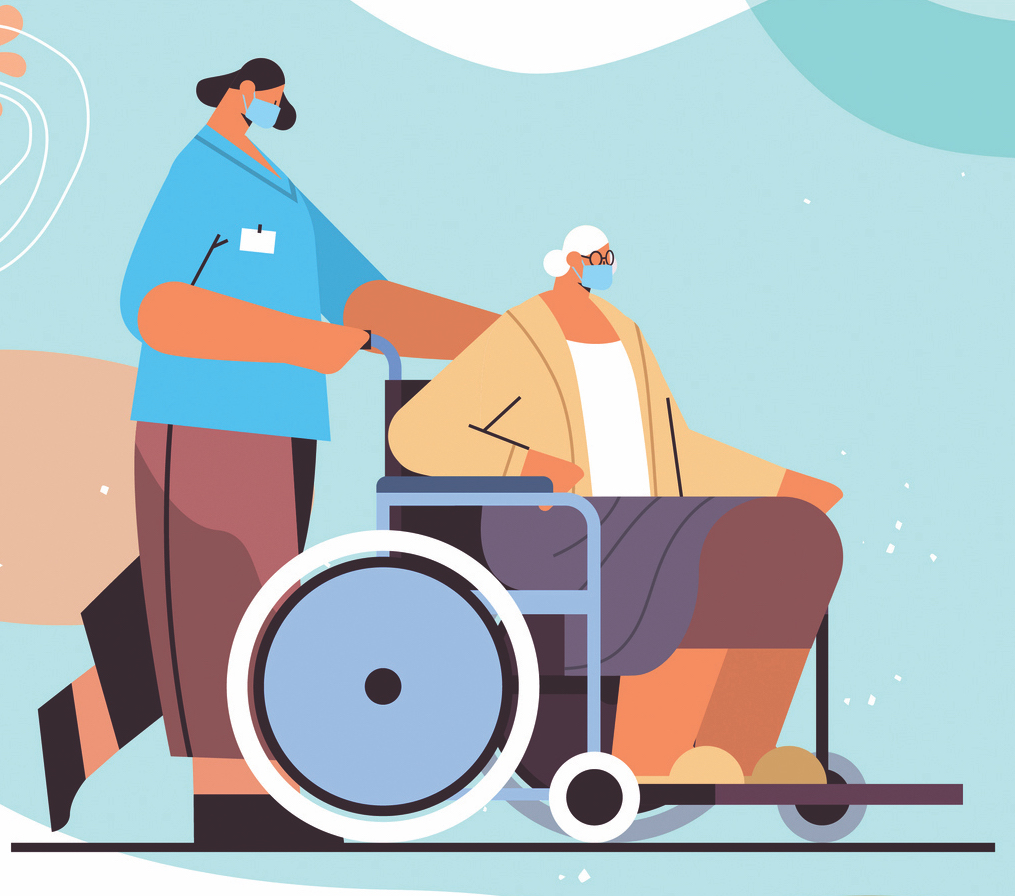Vital to healthcare quality and safety
By Maria Judd and Adrienne Zarem
In a hospital radiation wing, an Essential Care Partner (ECP) comforts a palliative patient during another round of testing. For this patient, keeping calm in the MRI is a little easier knowing that their ECP is there. During a homecare visit, a nurse teaches an ECP to change their loved one’s wound dressing. The nurse is assured that when the snow makes the rural roads dangerous this winter, the ECP’s loved one won’t have to wait for care. And at a dietitian’s office, when a patient struggles to recall how their care plan is going, an ECP smiles and reports that the patient still has their appetite following treatment.
No matter what care context Essential Care Partners are a part of, their value is clear. They are vital members of the care team who provide consistent support to a loved one throughout their care journeys—improving safety, care and the well-being of all involved.
And just as their presence brings positive effects, their absence can result in negative effects. For example, their restricted presence through COVID-19 led to many unintended harms that impacted the quality of care, patient satisfaction and increased pressure on the healthcare system.

Who are Essential Care Partners?
ECPs are different from general visitors; they are identified and designated by patients. Throughout the care journey, they play a significant role in patient safety and provide physical, psychological and emotional support, including support in decision-making, care coordination, and continuity of care. ECPs can include family members, close friends, caregivers or any person identified by the patient.1,2
Value at vulnerable times
Essential Care Partners are a second set of eyes, ears and voice when the patient is at their most vulnerable. Other than the patient, they are the only ones who see the healthcare journey from beginning to the end. Here are just some of the ways ECPs benefit patient safety, experience of care and outcomes:3
1) Helping to prevent falls.
2) Improving the accuracy and quality of shared information, such as patient medical history.
3) Improving medication safety and recognizing medication errors.
4) Identifying health risks and changes in condition (e.g. pressure ulcers, cognitive function).
5) Providing comfort, which contributes to reducing loneliness, isolation, depression, anxiety and improvement in overall mental health.
6) Reducing healthcare provider stress, moral distress and burnout while increasing the level of person-centred care necessary for patient safety and well-being.
What can we do to support ECPs
We can support Essential Care Partners by differentiating their role from that of visitors and recognizing the value they bring. But most importantly, as we move through the pandemic towards recovery and resilience, we can provide support for them by safely welcoming and re-integrating them into health and care settings (e.g. hospitals, long-term care/residential care/nursing homes, primary care and outpatient care) and formalizing their recognition through policies and practices across the country.
Maria Judd is a physiotherapist by background and currently the Vice-President of Strategic Initiatives and Engagement at Healthcare Excellence Canada (HEC), a new organization with a relentless
focus on improving healthcare, with—and for—everyone in Canada.
Adrienne Zarem is a patient partner with HEC.
1) Canadian Foundation for Healthcare Improvement. “Policy Guidance for the Reintegration of Caregivers as Essential Care Partners.”(2020). Retrieved from https://www.cfhi-fcass.ca/innovations-tools-resources/itemdetail/2020/11/19/Essential-Care-Partners-Policy-Guidance
2) Farmanova, Elina, Maria Judd, Christine Maika, and Graeme Wilkes. “Much More Than Just a Visit: A Review of Visiting Policies in Select Canadian Acute Care Hospitals.” Canadian Foundation for Healthcare Improvement (2016). Retrieved from https://www.cfhi-fcass.ca/docs/default-source/itr/tools-and-resources/better-togetherbaseline-report.pdf 22
3) Canadian Foundation for Healthcare Improvement. Evidence Brief: Caregivers as Essential Care Partners. (2020). Retrieved from Evidence Brief: Caregivers as Essential Care Partners (cfhi-fcass.ca)














